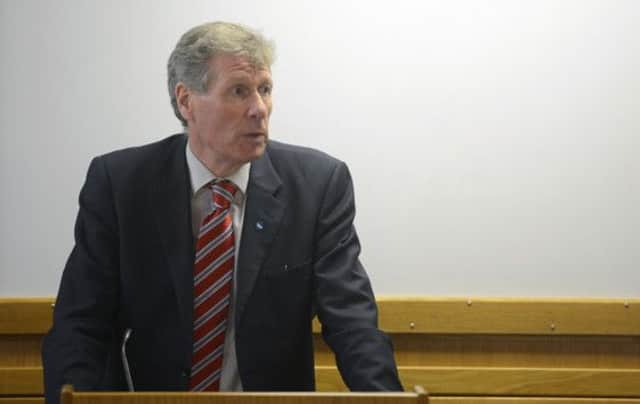Chris Marshall: Corroboration move is the right one


The principle, which requires two independent pieces of evidence to bring a case to trial, is under threat as a result of the Criminal Justice (Scotland) Bill, which is making its way through the Scottish Parliament.
Regarded as either a crucial safeguard or an outmoded idea that prevents convictions, corroboration has been central to how the Scottish legal system operates for hundreds of years. Late last month, Mr MacAskill said he had accepted a proposal from opposition parties to delay the passage of the justice bill until a review being led by Lord Bonomy reports back next spring.
Advertisement
Hide AdAdvertisement
Hide AdThe surprise U-turn means further discussion of the bill will be held back until after the independence referendum, leading opponents to accuse the minister of “parking” the contentious legislation. The minister’s decision is likely to find favour in the legal world, where there has been much criticism of the plans.
Last month, former high court judge Lord McCluskey launched a renewed attack on the plan to scrap corroboration in criminal trials, sending an 18-page letter to Holyrood’s justice committee outlining his concerns.
Lord McCluskey warned that removing the need for evidence from two sources would put too much faith in “flawed police practices”, discarding the “slow, considered judgment of centuries of judges”. But removing the need for corroboration has its supporters. Frank Mullholland, the Lord Advocate, has backed it as a necessary change for bringing more rapists and domestic abusers to justice.
Regardless of his motivations, Mr MacAskill’s decision to put off changes to corroboration is the right one.
Lord Bonomy’s review group, which will look at safeguards against miscarriages of justice, includes representatives of the police and victims groups as well as members of the justiciary.
Indeed, the Scottish Government has already proposed one possible safeguard – raising the number of jurors required to deliver a guilty verdict from eight to ten out of 15.
The group will also consider whether a formal test for sufficient supporting evidence should be introduced, the use of confession evidence, circumstances where evidence should be excluded and dock identification.
It is only right that the group’s work should be concluded before a final decision is taken on corroboration.